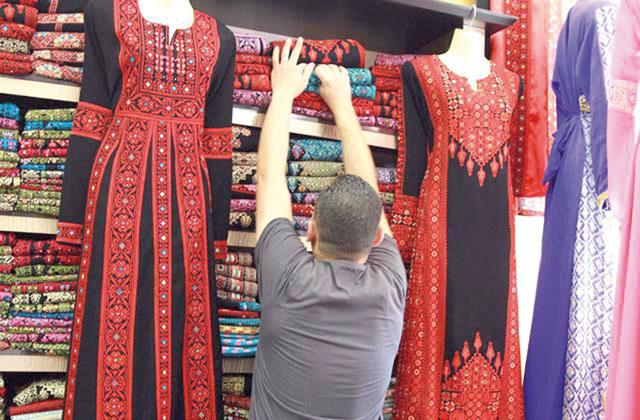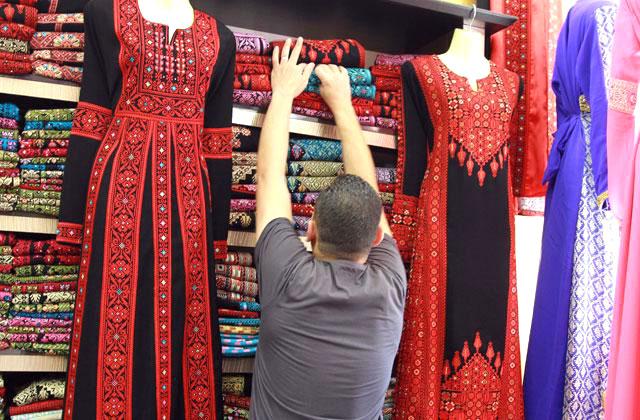You are here
Eid clothes becoming ‘unaffordable ritual’, say parents
By Rayya Al Muheisen - Jul 06,2022 - Last updated at Jul 06,2022

Representative image (File photo)
AMMAN — Shopping for new outfits has been a longstanding way of welcoming Eid Al Adha for most Jordanian families, however, some say the tradition has become “a burden on parents”.
The holiday, which falls on the 10th day of the 12th month of the Hijri calendar, Dhul Hijja, is the feast marking the end of the annual pilgrimage to Mecca, which Muslims of sufficient means are required to perform at least once in their lifetime.
Eid Al Adha means “feast of sacrifice” and during the holiday Muslims slaughter livestock, cattle or camels and distribute the meat to the needy.
Mamoul, sweet cake stuffed with date paste or nuts, served with Arabic coffee, family gatherings and phone calls and texts conveying eid greetings are some of the characteristic features of eid. However, the most important treat for children — and some adults — is new clothes. Shopping for new outfits has been a longstanding way of welcoming eid for most Jordanian families.
“New clothes for eid were a must for children, teenagers and adults back when I was a child,” Hanan Shaheen, 33, a mother of two, told The Jordan Times.
She added that nowadays, new outfits have become a treat mainly for children. “My mother buys eid outfits for my girls — usually dresses with matching shoes and purses to put eid money in,” she said.
“Kids’ clothes are way too expensive,” said Ali Masadeh, 32, a father of two.
He stated his young daughter’s clothes cost as much as, if not more than, his and his wife’s clothes.
Mohammad Ladiqani, also a father of two, pointed out that low wages combined with increasing prices have made “this ritual a burden on parents”.
“As a father, I struggle to please my children on one of the most festive days of the year,” he said.
Asad Qawasmi, a representative of the clothing, footwear and jewellery sector at the Jordan Chamber of Commerce, told The Jordan Times that demand is somehow limited.
“Demand and purchasing power are lower than average. Overall sales are weaker than last season,” he said.
Qawasmi added that demand is lower than expected despite banks postponing instalments and employees receiving their monthly salaries ahead of eid.
He stressed that prices of clothing and footwear in the local market are stable and “have not increased” despite the global increase in shipping fees and input materials.
Akram Rbeihat, who works at a clothing shop, spoke to The Jordan Times about his shop’s sales. “I haven’t sold as much as I had sold before Eid Al Fitr so far,” he said.
A consignment shop owner who preferred to remain anonymous told The Jordan Times that Jordanians’ shopping patterns have changed.
“Customers are now fully aware of the shopping options available to them,” she added.
She said that her business model relies on closet-to-closet exchange. “In short, customers exchange pre-loved items from each others’ wardrobes on the condition of anonymity.”
“My sales are growing incredibly. I believe that merchants have to adapt to market changes in order to sustain their businesses,” she added.
Related Articles
AMMAN — With Eid Al Adha just around the corner, people in the Kingdom enthusiastically prepare to welcome the Islamic holiday. In cele
AMMAN — Clothing stores are offering eid discounts, ramping up their plans to revive the Kingdom’s apparel sector, according to a stakeholde
AMMAN — A clothing sector representative on Monday demanded allowing shops to fully open and to cancel the curfew imposed at midnight until












